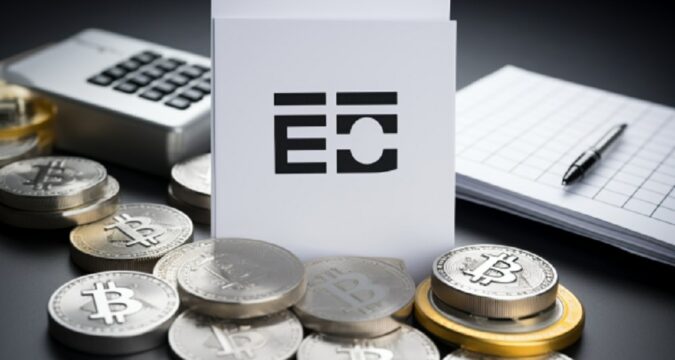
Grayscale, a prominent crypto fund manager, is urging the United States Securities and Exchange Commission (SEC) to approve all submitted spot Bitcoin exchange-traded fund (ETF) proposals simultaneously. The firm’s push stems from a desire to eliminate any potential benefits from the regulator backing one ETF over any other one.
No Room For Winners And Losers
On July 27, a letter signed by Craig Salm, Grayscale’s Chief Legal Officer, became a huge source of debate within and outside the crypto ecosystem. Grayscale’s legal team had formally submitted a compelling letter addressing all filed spot Bitcoin ETF filings, including their own.
The letter’s main point was to oppose the regulator’s practice of favoring certain ETFs while rejecting others. Instead, it advocated for a fair and impartial decision-making process.
Moreover, the letter emphasized that because the two fund types are inherently linked, the SEC can use its basis for approving Bitcoin futures ETFs as a precedent for approving spot ETFs. Furthermore, Grayscale argued that recent surveillance sharing agreements (SSAs) between Coinbase and spot ETF providers were not novel and failed to meet the SEC’s stringent standards.
Meanwhile, Grayscale added that there is a need to have a more balanced and equitable evaluation of the spot Bitcoin ETF filings by the SEC. Several prominent investment firms, especially BlackRock, Invesco, Valkyrie, VanEck, Fidelity, WisdomTree, and ARK Invest, have recently revised their ETF filings to include Surveillance Sharing Agreements (SSAs) like the US-based crypto exchange.
This strategic move demonstrates the growing importance of SSAs in ETF proposal evaluation by the US regulator. These agreements are designed to improve surveillance and monitoring capabilities, strengthening the ETFs’ integrity and security.
Hence, these investment firms demonstrate their commitment to a safe and transparent environment for investors through their partnership with Coinbase, a leading cryptocurrency exchange known for its robust security measures and regulatory compliance.
The Need For SSA
Meanwhile, Coinbase took a significant step towards addressing concerns about potential market manipulation and irregular trading activity by agreeing to share critical information, including details about its trading books, with the US securities watchdog.
This move aims to facilitate the regulatory body’s close monitoring and oversight, fostering a more transparent and secure trading environment. Several reports claimed that the SEC expressed concerns about certain ETFs in late June, citing the lack of SSAs.
The regulator claimed that it would require SSAs to reduce the possibilities that exchanges might be manipulating the cryptocurrency markets. However, Grayscale argued against the SEC’s stance.
The asset manager contended that SSAs would not be necessary to meet the SEC’s regulatory standards. Grayscale’s reference point was that Coinbase is not registered with the SEC as a securities exchange, broker-dealer, or with the Commodity Futures Trading Commission (CFTC) as a futures exchange.
According to Grayscale, the ETFs’ approval would represent a notable yet abrupt and significant shift in the SEC’s application of its regulatory standards. However, it is concerned that some applications may be given preferential treatment over others, potentially leading to an uneven playing field for market players.
Grayscale noted that the Grayscale Bitcoin Trust (GBTC), designed to mirror Bitcoin’s price movements, has attracted nearly one million investors, demonstrating significant investor interest in cryptocurrency-related investment products. The firm’s move highlights the significant demand for accessible and regulated investment opportunities in cryptocurrency.




